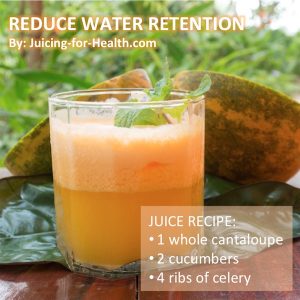7 Causes Of Water Weight Gain And Effective Ways To Reverse Water Retention
Last updated on
What Is Water Retention?
Water retention, also known as edema, is the build-up of fluid in the circulatory system or within tissues and cavities. It can cause swelling in the hands, feet, ankles and legs and is common in women during pregnancy or before their period.
It also affects people who are physically inactive, such as someone who is bedridden, sitting through a long flight or one on long-term medications.
Although many of the causes of water retention are non-life-threatening, it can also be a symptom of severe medical conditions such as kidney disease or heart failure. However, in cases where there is no underlying health condition, there are ways to avoid water retention and reduce the swelling caused by it.
Here are some common reasons for water retention. When you understand the cause of your water retention, you will be able to reverse it by avoiding or stopping the very thing that is causing it.
Water Retention Causes And Remedies
Before we talk about remedies for water retention, we want to look at what causes water retention. There are many reasons why you get water retention:
Causes Of Water Retention
1. Excessive sodium intake causes water retention: When you eat foods that are high in (refined) salt and drinking insufficient water, your body goes into “reserve mode” and begins to retain water. Your cells may expand about 20x over with water, to dilute the salty environment.
Salt isn’t the only commonly consumed product that is high in sodium. Processed food products such as processed meat, certain condiments and even canned vegetables have all been found to have a high sodium content.
On the other hand, there are natural salts that don’t cause water retention, but in fact can help to reverse the condition. Drinking water with Celtic sea salt or Himalayan salt have the opposite effect of the damages that table salt does.
2. Magnesium deficiency causes water retention: One of the symptoms of magnesium deficiency is water retention. Almost every function in our body requires magnesium, therefore, a deficiency in this mineral may cause various functions in the body to be performing below optimal level, thus contributing to water retention.
One study found that 200 mg of magnesium per day reduced water retention in women who are experiencing premenstrual symptoms. Adding foods that are rich in magnesium in your diet, or taking a high quality magnesium supplement may help to relieve this condition.
Foods rich in magnesium include avocados, dark green vegetables, nuts, whole grains, spinach, peas, yogurt, dark chocolate and dried fruits.
3. Deficiency in vitamin B6 causes water retention: Vitamin B6 controls many aspects of water balance in the body, therefore, a deficiency in this vitamin may contribute to water retention.
According to a study conducted by the Journal of Caring Sciences, women who were experiencing water retention due to premenstrual syndrome benefitted from taking vitamin B6.
During the clinical trial the women reported that they found vitamin B6 helped reduce their symptoms more efficiently than any of the other supplements that they were given.
Vitamin B6 is a water-soluble vitamin that requires various cofactors to work, thus it’s best to obtain it from whole foods instead of from supplement.
Foods rich in vitamin B6 include sunflower seeds, pistachio nuts, dried fruit, bananas, potatoes (with skin), tuna, chicken, turkey and lean beef.
4. Lack of potassium causes water retention: Potassium is an essential mineral responsible for proper function of cells, tissues, and organs in the body. It is an electrolyte which is required to maintain a normal water balance in the body.
High consumption of salt, too much sweating through exercise, not eating foods rich in this mineral can cause a depletion of potassium, which then lead to edema or water retention.
A lack of potassium may also cause other health issues such as muscle spasms, cramps and weight gain.
If potassium deficiency is the cause of your water retention, then replenishing potassium will help reduce water retention.
Potassium pushes out the excess sodium from your cells to correct the potassium-sodium balance, thus reducing water retention. Sodium will be eliminated from the body through urination.
Most fruits have high potassium content and it’s especially high in watermelon, rockmelon and honeymelon. Adding more fruits and vegetables in your diet is a good way to obtain this mineral, instead of taking supplements that may cause side effects.
5. Dehydration causes water retention: Not drinking sufficient water can cause a dehydration issue in your body. When you are dehydrated, your intelligent body goes into survival mode and retains water “in fear of drought”.
Drinking sufficient water and juices that are rich in potassium will alleviate this condition, by telling your body that “there is no drought” and there is no need to retain water.
Understand how much water you need to drink daily, drink that amount and more until your water retention subsides. Coffee, tea, soda drinks don’t contribute to your water quota and in fact further dehydrate your cells. They are diuretics and dehydrating, causing water retention.
6. Eating too much processed foods can cause water retention: Processed foods not only have high content of sodium and sugar, they also contain various artificial food additives that work as toxins that burden your liver and kidneys.
Foods high in sugar, especially in artificial sweeteners cause rapid spikes in blood sugar and insulin levels that will require your cells to retain more sodium by increasing re-absorption of sodium in the kidneys.
Cut down on your intake of processed foods. Juice fasting is a good way to detoxify your body of toxins to keep your body in tip-top condition and be rid of chronic ailments.
7. Certain medications can cause water retention: The hormones progesterone and estrogen play a significant role in water retention. When estrogen levels are elevated as in the case of taking drugs that contain estrogen, such as hormone replacement therapy (HRT) or birth control pills, it can cause you to retain more water than usual. This is why in the days leading up to menstruation, bloating is common due to the elevated estrogen levels.
Taking steroidal or non-steroidal anti-inflammatory drugs (NSAIDS) may reduce inflammation, however it can also cause many side effects. Among the side effects are damage to your gut lining, water retention in your legs and on your body, making you look puffy all over.
Taking hypertension drugs with beta-blockers can lead to water retention. These drugs are diuretics, increasing urination and eliminating the mineral potassium while retaining more sodium. Excess sodium in the system as we know it, can cause water retention. Excess sodium also means that your blood pressure will continue to be high, thus defeats the purpose of trying to lower your blood pressure with these drugs.
Antibiotics are some of the drugs that can cause many side effects. Among them, are damages to the liver and kidneys. Antibiotics affect the kidneys in some ways that can lead to water retention.
Natural Remedies For Water Retention
Drain your lymph fluids to relieve water retention: Water retention is also a symptom of a congested lymphatic system. If you are prone to water retention, thank your intelligent body for signalling to you that there could be an underlying problem—and that you need to drain your lymph fluids.
There are many reasons why the lymph nodes may be congested but an easy lymphatic detox will greatly benefit you. Take a long weekend to perform this lymphatic detox to drain your body’s “sewage system”.
Herbs supplements/teas that are beneficial for reducing water retention: There are a few herbs that can be potentially beneficial for reducing water retention by their diuretic properties. However, keep in mind that these are only supported by anecdotal evidence, not lab studies.
- Dandelion root
- Horsetail
- Parsley—go to this page for parsley tea recipe
- Hibiscus tea
- Garlic
- Fennel
- Corn silk
- Nettle
Juicing for reducing water retention: These are some ingredients that I like to use for reducing water retention. They work like a quick fix when I encounter water retention in the legs due to faulty eating (it happens!). Just drink till the swelling subsides and it does get better very quickly when we flood the system with the right foods. Just drink away!
References:
Sodium and Fluid Retention: https://www.ncbi.nlm.nih.gov/pubmed/2957126
Magnesium and Water Retention: https://www.ncbi.nlm.nih.gov/pubmed/9861593
B6 and Premenstrual Syndrome: https://www.ncbi.nlm.nih.gov/pubmed/25276694
Potassium and Water Retention: https://www.ncbi.nlm.nih.gov/pubmed/9428447
Dandelion as a Diuretic: https://www.ncbi.nlm.nih.gov/pubmed/19678785
Some of the links I post on this site are affiliate links. If you go through them to make a purchase, I will earn a small commission (at no additional cost to you). However, note that I’m recommending these products because of their quality and that I have good experience using them, not because of the commission to be made.
Comments
Leave a Reply











































 JOIN OVER
JOIN OVER
Hi, I found this very helpful as I have just had an emergency scan for DVT, though it showed all clear, the legs still swell up. I am on holiday in the USA and have a long flight home in a couple of days.